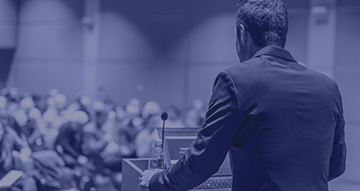WEF Hoffmann Fellow BIPP
Job Description
Hoffmann Fellow – Food Innovation Hub (two-year fixed-term programme)
The Position
The World Economic Forum and the Indian School of Business seek a Hoffmann Fellow for a two-year joint appointment for working on the social, economic, and environmental dimensions of sustainability in agriculture. The Hoffmann Fellow will work with and jointly report to Professor Ashwini Chhatre (Executive Director, Bharti Institute of Public Policy) and Professor Sarang Deo (Executive Director, Max Institute of Healthcare Management) at the Indian School of Business. The Hoffmann Fellow will establish a research programme to quantify the sustainability dimension of agricultural production in India, enumerating the environmental, ecological, climate, and health impacts across space and over time. The André Hoffmann Fellowship for the Fourth Industrial Revolution offers early-career academics the opportunity to work at the intersection of society, science, and technology through a joint appointment between the Indian School of Business and the World Economic Forum.
Over the last 50 years, India’s food production has witnessed an unprecedented growth, leading to increased food supply per capita, lower prices, and reduced food insecurity at all levels. But this remarkable expansion in food supply has generated severe environmental impacts. Food production is accompanied by depletion of freshwater resources for irrigation, soil degradation from indiscriminate use of fertilizers, and rising greenhouse gas emissions from unsustainable farm practices. To sustain an increasingly affluent population suffering from the double burden of malnutrition, food security goals need to incorporate nutrition security, reduce the environmental burden of agriculture, and promote judicious use of resources. Achieving sustainable, nutritious, inclusive, and efficient food systems calls for a reimagination of the linkages between sub-systems for production, procurement, processing, distribution, and consumption. The Hoffman Fellow will use the lens of multifunctional agriculture to outline the set of opportunities and associated challenges at the intersection of climate science, public policy, system design, and market economics with a focus on sustainability.
Throughout the 2-year term, the Fellow will be an active member of teams at ISB involved in ongoing research on different aspects of food systems and will serve as the primary liaison between ISB and the World Economic Forum as part of the India Food Innovation Hub (see below for description). The Fellow is expected to join team meetings and strategy sessions, participate in virtual conferences, consultations and/or events with external stakeholders, and participate in planning, as required by the Fellowship.
Key responsibilities
Tasks will be co-determined by ISB team leads and WEF partners in collaboration with the Hoffman fellow. The role is dynamic and will be adapted as the initiative takes shape. Responsibilities include:
• Analyse high-resolution datasets to identify patterns of dark and bright spots on specific dimensions of sustainability (social, economic, environmental, ecological, climate, and health impacts) and follow up with qualitative analysis of their emergence and policy implications.
• Review and synthesize existing evidence to outline the set of opportunities and challenges for sustainable agriculture at the intersection of climate, policy, and markets.
• Develop quantitative models that leverage tools from econometrics, operations research, machine learning, etc. to analyze existing data and quantify the impact of policy on key outcomes of interest.
• Integrate elements of research already underway at ISB that complement the activities of the India Food Innovation Hub, as well as create opportunities for researchers at ISB to collaborate on innovations in food systems.
• Organize or help organize conferences and workshops on topics relevant to the project and research questions.
• Write blogs, prepare presentations, attend conferences and other public-facing events as part of research outreach. Aim is to publish at least two white papers which may be written jointly with the ISB and World Economic Forum teams.
Preferred qualifications and experience
Advanced degree earned in the last five years (preferably a PhD or equivalent degree in a discipline with a strong focus on Environmental Social Sciences – basic or applied, with broad expertise in food systems). Strong training and experience in one or more quantitative methods (econometrics, GIScience, simulation, optimization, NLP, machine learning, etc.).
In addition to subject matter expertise in their field, the Hoffmann Fellow must have experience or demonstrated strong interest in working on sustainability. Experience working in a collaborative environment is an advantage. Excellent academic track record, knowledge of diverse research methodologies and approaches, and a good work ethic are required.
The Fellow will need to travel and work in-person at ISB (Hyderabad campus) and World Economic Forum office in Mumbai or work remotely depending on the global pandemic situation. Once travel restrictions are eased, the Hoffmann Fellow may be requested to travel for other programme related events.
Start date: TBD, as early as March 1, 2022.
To apply: Please submit a cover letter that outlines your specific interest in the topic, highlights prior research that showcases the methodological skills and/or domain expertise required for the position, and provide any additional details that you feel help us evaluate your candidacy. Provide a detailed CV and contacts details of three potential references. Send your complete application to: Nitisha Jaiswal – nitisha_jaiswal@isb.edu.
Applications will be reviewed on a rolling basis from 20 Feb 2022, until the position is filled. Owing to the large volume of applications we expect to receive, we shall only contact shortlisted candidates. Applicants will receive an acknowledgement of receipt of the application.
Food Innovation Hub in India
The Food Innovation Hub in India will be part of a global network of being catalyzed and supported by World Economic Forum and other partners globally. Several regional Food Innovation Hubs are in development in Europe, Colombia, Vietnam and Kenya Latin America, ASEAN, and Europe. The goal will be to advance technology and broader innovations that build more efficient, inclusive, sustainable, nutritious, and healthy food systems. In India, the Hub will focus on three primary outcomes:
(i) Increase investments in technology innovations and integrated value chains promoting
sustainability and nutrition;
(ii) Improve the policy environment and local innovation ecosystems by strengthening local capacities and evidence-based decision-making processes; and
(iii) Improve smallholder farmers access to markets and technology innovations.
With a focus on strengthening innovation ecosystems to meet local opportunities and challenges, the Food Innovation Hub in India, in the first phase, will look to develop and deploy a few interventions in 2-3 states that can lead to a holistic food systems outcome. The Hub will play the role of a catalyst rather than a thinktank and will share learnings to enable inter-state and South-South collaborations. It will support a broad innovation agenda focusing not only on technology but also on innovations in process, governance, and business models. Finally, the Food Innovation Hub will function as a multistakeholder, neutral and pre-competitive partnership platform that enables co-creation, develops linkages and alignment, joint problem solving, and develops innovative and inclusive governance models that most importantly bridges the trust deficit among local stakeholders and enables collaborations.
The Food Innovation Hub in India is jointly developed by the Centre for Fourth Industrial Revolution in India and the Centre for Nature and Climate at the World Economic Forum alongside a dynamic set of public, private, technology, and civil society partners.
About the Fellowship Programme
The André Hoffmann Fellowship for the Fourth Industrial Revolution offers early-career academics the opportunity to work at the intersection of society, science and technology through a joint appointment between the World Economic Forum and leading academic institutions. The two-year Hoffmann Fellowship term is co-hosted evenly between the World Economic Forum and a partnering university. Fellows are expected to commit full-time to the role. With joint guidance from a Forum project director and a faculty supervisor, the Fellow will help build and drive intensive collaborations among Forum and University Partners to deliver specific action-oriented outcomes through:
•Developing and executing initiatives to bring technology to bear on solving important global challenges
•Engaging Forum Partners –including leaders from the private sector, governments, international organizations, civil society and faculty from diverse academic disciplines –to build selected initiatives
•Researching key issues and the potential to harness Fourth Industrial Revolution innovations to provide solutions
Do you wish to apply? Share your profile
Email us at
Timings
Monday- Friday, 08:00 to 18:00



